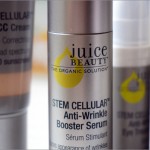
Are you paraben conscious about your products?
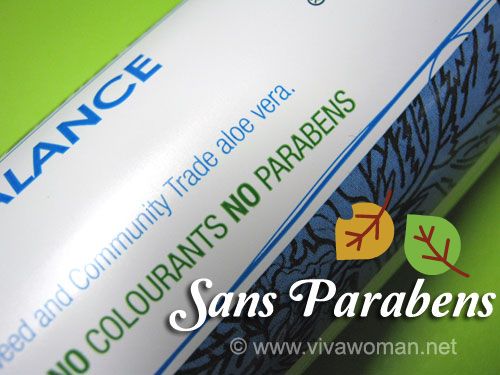
I was reading this article on 10 organic products experts would never buy and came across this comment by organic esthetician and chemist Kimberly Sayer, founder of Kimberly Sayer of London Organic Skincare: “If the product contains parabens, it is not organic. To identify parabens in an ingredient list, look for prefixes including methyl, propyl, butyl and ethyl parabens.” I believe most organic skin care lovers agree with that stance and would avoid parabens like the plague. Personally, I’m happy for my natural and organic products NOT to contain parabens but I actually do not mind using a product that contain mostly natural ingredients with some parabens listed at the end of the ingredient list if I really want to try the product badly enough.
Parabens have been overly vilified
Okay, okay…I know some of you would want to hit me on the head for writing this but I do agree that parabens have been overly vilified, as pointed out by Personal Care Information Based On Scientific Facts. Parabens as preservatives used in cosmetics are very effective at keeping bacteria at bay and much have been written about them being unsafe. The natural alternatives to parabens are grapefruit seed extract, essential oils and antioxidants like vitamin E, amongst others and whilst these are always said to be safer, but they have a much shorter life span. Hence, 100% naturally formulated skin care products have a much shorter shelf life altogether. I’m also seeing potassium sorbate and sodium hdroxymethylglycinate used as preservatives but I haven’t done much research about them.
Are natural preservatives truly that safe?
I’ve been trying a number of natural formulations using natural preservatives for some time now and I tell you that I am worried when I slather some of them on my skin after a few months. Why? I don’t know if they’re safe to use after awhile! Some of them change color and smell and so that’s a sign that they can’t be used anymore. However, others may be less obvious but it doesn’t take away the fact that they may not have been properly preserved. Frankly, between product contamination and slathering a teeny bit of parabens, I’m more concerned with the former.
Preservative in the context of our tropical weather
I remember one of the suppliers of natural cosmetics telling me that he prefers to sell his products in his stores rather than online because he is concern about shipping such products due to our weather. And here, I’ll like to bring out a valuable comment made by one of my regular readers, Audris, in my recent post regarding natural products:
Also, there’s some debate on natural preservatives not being that suitable for our warm and humid weather. So I can understand how conventional products might work better and be safer in that regard. Like mascara…
Certainly I don’t want my eyes to be contaminated and so if I were to use a mascara, I want to know that the product is safe to use and that would mean it should contain a good preservative.
Sans parabens?
My position in this is that while I prefer my naturally formulated organic products to be free from parabens, I do not mind parabens if they’re listed as the last ingredients on a product. I would not avoid them like the plague. Typically, my natural/organic skin care products do not contain them. However, when it comes to purchasing naturally formulated products, I would look for a few of the natural preservatives. If there’s only one listed, then I’ll be quite worried and would rather give it a miss especially if the product cannot take me beyond three months of usage.
So tell me: how do you feel about naturally formulated organic cosmetics and skin care products containing parabens?
Comments
Leave a Reply
You must be logged in to post a comment.

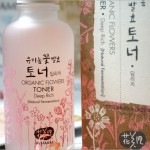
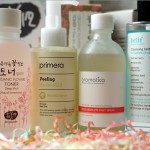
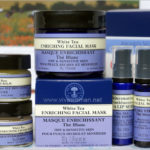








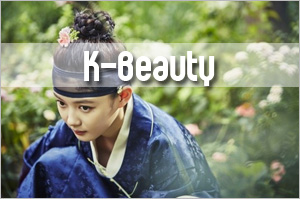
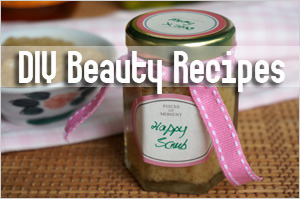
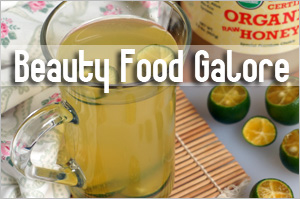
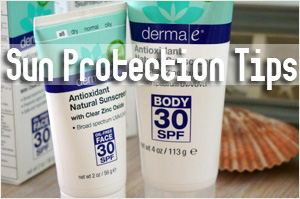
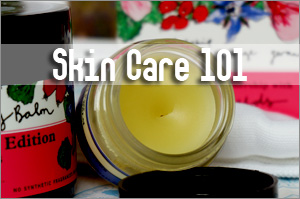
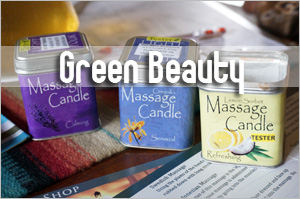
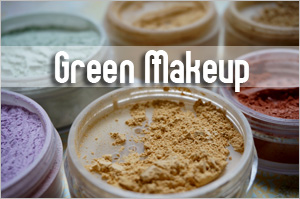
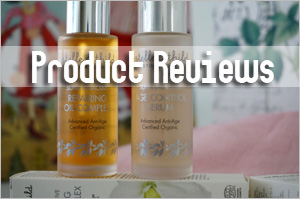
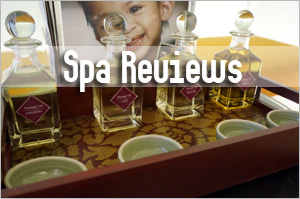
Good to see a reasonably balanced article about parabens – this doesn’t happen very often! Just for the record, methylparaben, ehtylparaben and propylparaben are found in nature. They are not extracted from nature and are not “organic”, but they ARE “nature-identical”! Potassium sorbate/sorbic acid (and sodium benzoate/benzoic acid) exists in nature, but are only commercially available as synthetically-produced products – ie they are not extracted from nature – putting them level with parabens, I would argue! Sodium hydroxymethylglycinate does not exist in nature.
I do think Parabens have been given a hard time, but in saying that; I do prefer my products to be without them.
Although I would not mind all that much if it was a product that worked well for my skin, so long as they were there in minimal amounts.
Some preservatives that are considered natural such as Sodium Hydroxymethylglycinate actually irritate my skin!
I haven’t had a problem with natural skincare shelf life as I tend to go through them in the suggested time frame for use.
Great article with both sides of the story!
@ Amanda – so you agree that parabens have been given a hard time, but you don’t really explain why you prefer to avoid them. They ARE used in minimal amounts – usually less than 0.4% and always less than 0.8%. Everything less than 1% is at the end of the ingredients listing (or should be!).
“Natural” does NOT mean that it is safe, or free from any adverse effects. Leaving aside the fact that sodium HMG doesn’t exist in nature (it is manufactured from glycine, which DOES, but that is not the same), many natural chemicals are irritant or dangerous in some other way. You may be aware that there are 26 allergens that must be listed on product labels in the EU. 19 of these are natural! There is no toxicological divide between natural and synthetic whatsoever. There are all shades between safe and toxic whatever the source.
I agree that in our hot tropical climate, buying skin care products with effective preservation system is a must. How about other types of preservatives found in natural products, such as: phenoxyethanol, optiphen, geograd ultra, cosmocil cq. I don’t think they are natural at all, but do anyone found them irritating? Any news about their effectiveness? I can see that many of Paula Begoun products have also changed their preservatives to phenoxyethanol.
It’s really just a personal choice for me, I’ve looked into some articles on PubMed and ScienceDirect regarding parabens, and although research is inconclusive regarding parabens, I much prefer avoiding them in case somewhere down the track they are proven to be hazardous – why take the chance. It’s just my personal choice.
They are effective preservatives and although I choose to avoid them, I like them better than phenoxyethanol which doesn’t suit my skin.
And yes, natural does not mean safe as many ingredients can be irritants, e.g Lavender Essential oil.
This topic is quite tough since I’m creating my own skin care line finally after 21 years of being an Aesthetician. I waited to see what was the right thing to do and part of me is torn apart. Chemists I speak with have different opinions than consumers do in the market today. So with that said.. I want to be “without parabens” but worried about the bacterial contamination factor especially when it comes to my acneic clients, The last thing they need is bacteria spreading. I’m torn.. sometimes I wonder if this Paraben free hype is like the “mineral oil free” hype in the mid 90’s. We must call a spade a spade sometimes and say that we’re in the market to sell and some things just sound better than they are. Mineral oil saved my skin when I had acne. Cosmetic lines want the newest info to hype it up but it does NOT mean it’s a good thing what so ever.
Hi Dene: I haven’t read much into the others so not too sure about their source and how natural or synthetic they are. But I only equate natural ones with essential oils, vit E and grapefruit seed extract.
Personally, I don’t see much of a problem with parabens at the end of the list. I’ve fiddled with some DIY product formulation and I know anything at the end of the list is really very little. But I guess the problem is, we’ve been kind of “brainwashed” and hence, would rather avoid them if possible.
If my memory is correct, then I don’t think I’ve tried anything with Sodium Hydroxymethylglycinate recently so can’t comment much. It doesn’t sound that natural to me anyway. LOL.
But you raised a good point…even essential oils can irritate some skin types and worst, some of them causes photosensitivity!
Phenoxyethanol is not so great according to some…can cause irritation for some skin type. However, it is perfectly fine for me. I don’t like it only cos it is in the alcohol family and I dislike using alcohol-based ingredients on my skin as far as possible. However, I did use some products containing it and did like those products as well.
I can’t comment on the others you brought out cos I have not researched into them nor tried them.
Yeah, it’s tricky…I think we all become subconsciously drawn into the bad press about such ingredients and then rather avoid them “just in case”. Like Amanda mentioned, why take the chance? Plus, we have other choices.
So I see more and more companies using alternative forms of preservatives out of commercial interest and yet, it doesn’t mean they’re definitely better or safer than parabens.
Hi Sesame, reverse the brainwashing – use parabens! lol
Vitamin E is an antioxidant, not a preservative, and you need to be aware that graprefuit seed extract is far from natural. It is highly chemically processed, and some grades have been found to contain high levels of parabens and/or triclosan. The grades that are truly natural have been found to have no antimicrobial activity. I can supply the detailed information to you if you can find a way of getting in touch, but I don’t want to disclose my e-mail address on here. You can find me on LinkedIn.
Despite its name, phenoxyethanol is not an alcohol – it’s a glycol ether. The true alcohol family have a massive variation in properties, so there is no need to avoid all alcohols. Methanol is not used in cosmetics, although ethanol, propanol and butanol are. Only ethanol can contribute significantly to skin drying, so you need not avoid the others. ALL preservatives have some potential to irritate skin – they are biologically active (otherwise they would not work!), but this potential is very low. Still not good for the small number of people who DO react, though, but it is a very small number.
Some of the products you mention do not exist in nature – those that do are not extracted from nature, but are chemically synthesised – “nature-identical”. Interesting that you mention Paula Begoun – Paula has now gone into print to say that she believes that the scare over parabens is groundless! You can end up avoiding every ingredient possible if you worry about some future discovery that shows something to be unsafe.
For anyone wishing to get more information on various ingredients, and general debunking of some of the many internet myths, you might like to visit http://www.personalcaretruth.com. There is some great info on here (and some articles from me as well!).
Hi Dene,
Thank you for all the information. I mention Paula Begoun here because, I remember that, she has never agreed with all the bad press about parabens. But then, I can see that she has removed parabens from her products, and has been using preservatives such as phenoxyethanol, chlorphenesin, benzoic acid, sorbic acid.. Is it because she has changed her mind? Or is it because, since there are many alternative preservatives, she doesn’t think it is worthed at all to stick to parabens that have gotten so many bad press?
Hi Dene: But vitamin E is commonly used as a preservative isn’t it – in the group of antioxidant – or may I should say it acts to prolong the shelf life of products? As for grapefruit seed extract, I did read about some issues on it but I didn’t realize that it is highly chemical processed. Interesting!
I don’t think the alternatives to parabens are perfect ones and so it depends on one’s threshold and concerns. Too bad parabens are “written to death” by the purists so these days, people are far happier to see a label that says “no parabens”. Most probably don’t recognize what the alternatives are anyway.
Hi Hong,
I think Paula WAS against parabens some time ago – I have a vague recollection of being annoyed over what she had written, but she is certainly not against them now. You are probably right in your suggestion that she doesn’t use them because of “consumer pressure”.
The discussion seems to get heated up here, so I thought I will add my stance on this subject. Being a manufacturer I prefer to choose the best of all evils – Phenoxyethanol, where it’s needed (water based formulas). It is used in such a small proportion (0.5%) that it doesn’t cause any irritation at all. At least I haven’t had any complaints so far. I am aware that there are “natural” preservatives, but they are NOT broad spectrum. They can prevent bacteria but not mold, and vs. versa. I have read recently that there were recorded death cases from use of contaminated products. So, do you want to take that chance by avoiding precervatives?
I do understand Paula’s change of mind. You have to follow the hype. If everyone thinks Parabens are bad, they will not buy the product containing it, end of story. (even if it’s all not true)So as a manufacturer you have to adapt. It’s easier to adapt than to educate, counteracting the hype.
To think that all natural is all good for you is absurd. Poison Ivy is natural. But is it good? Also taking in consideration the amount/use/toxicity of an ingredient is also the key. We know that water is good for us, it’s a life source, right? But what happens when you inhale it?…. Well, you know. Shell your soul rest in peace. So I belive that everyhting has to be in a healhy moderation, but do your own research before you panic.
Aubrey Organics is one major brand that uses a totally natural preservative formula (a secret blend of citrus seed extracts and more): http://www.aubreyorganics.co.uk/ingredient-30-aubreys-preservative.html
On the downside, while their products last much longer than most products without parabens, their shelf life is shorter. And some people dont like the smell the preservative gives to some of their products (I dont mind it; it’s a bit like dried fruit).
I know what you mean…the problem with really natural ones are the shelf life is so short.